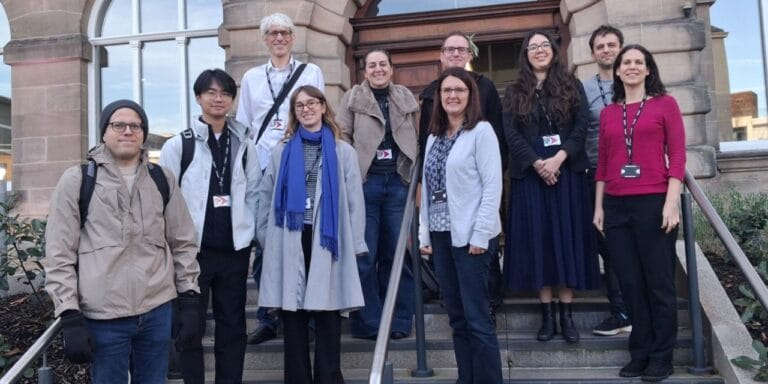The latest update to MalariaGEN’s Plasmodium falciparum data resource, Pf8, was published today in Wellcome Open Research. With roughly 60% more samples included than 2023’s Pf7 release, Pf8 adds significantly to the dataset that has already powered hundreds of studies and publications.
Successive World Malaria Reports since 2019 have shown that the rapid progress made in the early 21st century to eliminate malaria has stalled. The most recent estimates put the annual death toll at 597,000, with 263 million cases. After steady declines, these numbers have plateaued for several years in a row, in spite of continued efforts by dedicated teams around the world. While nets and drugs have averted many millions of deaths from malaria, it is clear that the large and diverse populations of Plasmodium falciparum are evolving to escape control measures. Genomic data resources allow researchers and public health officials to uncover and understand these evolutionary changes, and then adapt their strategies accordingly.
Large, open data resources like Pf8, which MalariaGEN pioneered with its first human data resources nearly 20 years ago, hold unique promise for finding new, sustainable solutions against malaria. With more samples from more locations over a broader range of time, users can leverage Pf8 to:
- Understand malaria parasites to a high level of precision and granularity
- Establish a baseline to understand the effects of new malaria vaccines
- Spot existing and emerging hot spots for drug resistance
- Find new drug and vaccine targets
In addition to the raw genomic data being freely available to download, Pf8 is accompanied by a suite of easy-to-use tools to aid analysis. This includes the Pf-HaploAtlas, which allows haplotypes to be explored without the need for code. More in-depth analyses can be performed in the cloud with the free analysis notebooks. These allow anyone with an internet connection to access and interact with the data. The code is clearly annotated and documented, meaning users can run their own analysis simply by tweaking the code. These can be used to create interactive plots to interrogate patterns of drug resistance, visualise gene variant frequencies, and study geographic patterns.
What people are saying about Pf8
Foundational tools
“Large open genomic data resources such as Pf8 are foundational tools in the fight against malaria. In addition to providing surveillance of known biological threats, they can also be used to discover new risks to malaria control and elimination, and to drive the development of next generation vaccines, diagnostics and therapeutics.
Dr Richard Pearson, Data Lead for malaria parasites in the Wellcome Sanger Institute’s Genomic Surveillance Unit, who is the corresponding author on the new paper
Unprecedented data
“I’m thrilled about this latest parasite data release from the MalariaGEN network. It includes more than 12,000 new parasite genomes, including some from The Gambia as far back as 1966 (about half a century ago). This unprecedented data offers a unique window into the evolution and resilience of malaria parasites, providing critical insights into new candidate adaptation genes that could pave the way for designing new approaches to beat this formidable parasite.”
Prof Alfred Amambua-Ngwa, Professor at the MRC Unit The Gambia at LSHTM, who led studies that contributed 1,972 new samples to Pf8.
Uniquely powerful
“The latest MalariaGEN parasite data resource, Pf8, is uniquely powerful. Its breadth, depth, and openness are world-leading. For example, the parasite genomes from Kenya span more than 25 years, and this can show important trends over time and space, an example is the disappearance of chloroquine resistance mutations over time.”
Dr Isabella Oyier, Head of Biosciences at the KEMRI-Wellcome Trust Programme
A treasure trove waiting to be explored
“Pf8 is a monumental step forward for a data resource that was already world-leading. It’s a treasure trove just waiting to be explored, with countless discoveries waiting to be made about parasite epidemiology, gene flow, drug resistance and vaccine susceptibility. For example, the copy number variation (CNV) data in the Greater Mekong Subregion are particularly interesting, since amplifications are strongly associated with resistance to key drugs deployed in that region.”
Prof Olivo Miotto, who leads the GenRe-Mekong genomic surveillance project from the Mahidol Oxford Tropical Medicine Research Unit in Bangkok
Unlocking the secrets of Plasmodium falciparum
Pf8 sees the release of high-quality whole genome sequences from an incredible 33,325 samples collected over 56 years in 25 countries. It is a testament to the power of long-term, global collaboration and will help solve more mysteries about this deadly parasite.
How to use the data
There are many ways to interact with the Pf8 data to understand more about the evolution of malaria parasites.
- Explore summary statistics and biomarkers for drug resistance using the Pf8 App.
- Open the freely available guided Jupyter notebooks and interrogate the data using the malariagen_data python package
- Delve into the frequencies of different haplotypes using the intuitive and code-free Pf-HaploAtlas, which now includes the latest data from Pf8.
- Download the data to perform your own analyses
- Read the manuscript, now available on Wellcome Open Research
Reach out to support@malariagen.net for support in using or understanding the data.
This data resource builds on decades of work from hundreds of individuals around the world, and contains untold discoveries just waiting to be made. When you use the data, please use the following citation:
Pf8: an open dataset of Plasmodium falciparum genome variation in 33,325 worldwide samples. MalariaGEN et al, Wellcome Open Research 2025, 10:325 (https://doi.org/10.12688/wellcomeopenres.24031.1)
Pf HaploAtlas
Explore combinations of mutations, or haplotypes, for all 5,102 core genes of the Plasmodium falciparum parasite. The latest version has been updated to include data from all 33,325 samples in Pf8.
Parasite Observatory
All of MalariaGEN's parasite resources are now listed in one central hub. Explore data, training, amplicon workflows, and more.



